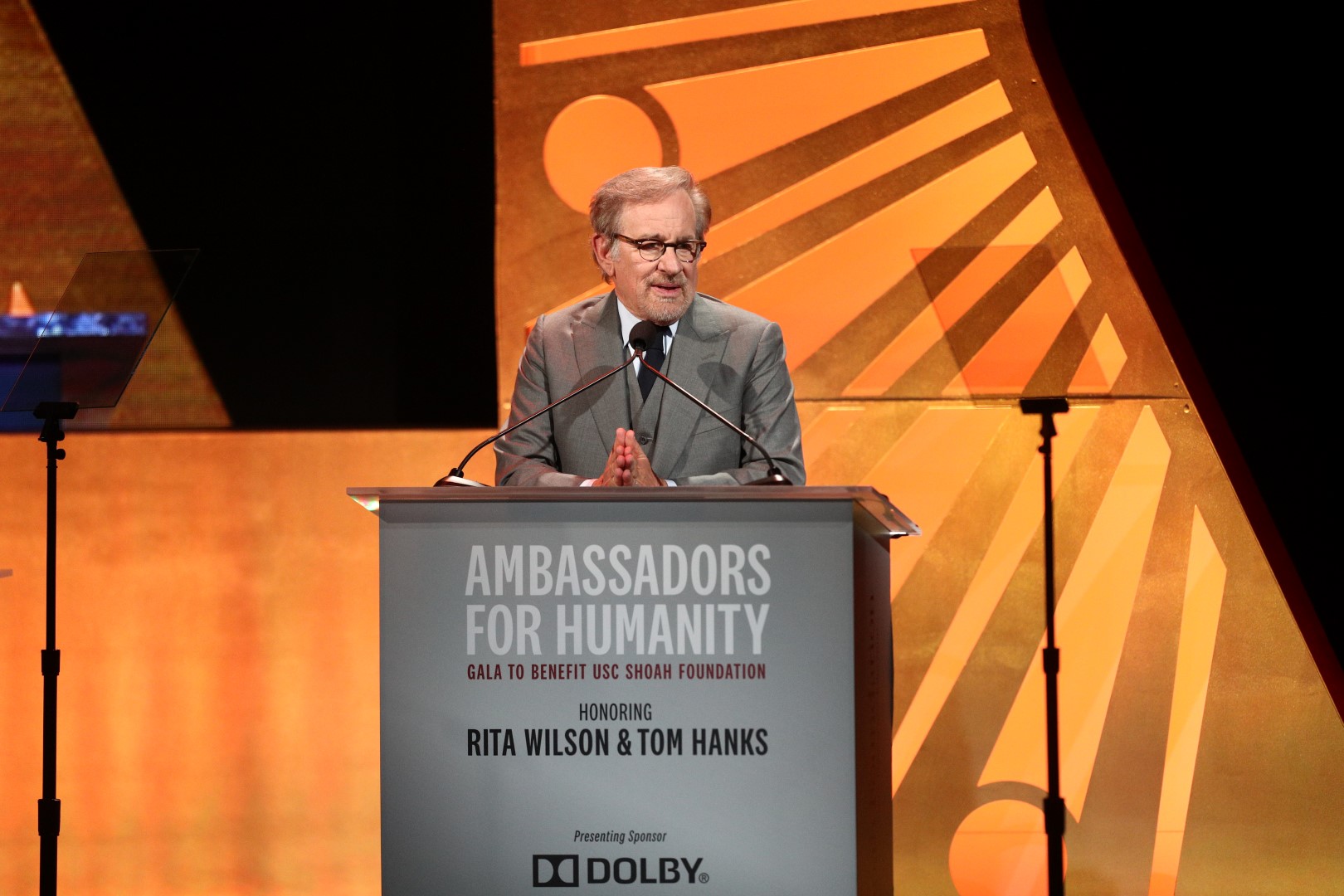USC Shoah Foundation founder Steven Spielberg discusses Institute’s expanded mission in NYT interview

 USC Shoah Foundation founder Steven Spielberg delivers remarks at the 2018 gala.
USC Shoah Foundation founder Steven Spielberg delivers remarks at the 2018 gala.In the article, “Steven Spielberg on Storytelling’s Power to Fight Hate” by Adam Popescu, Spielberg tours the Institute’s new global headquarters on the USC campus and explains its expanded mission to use testimony from genocide survivors to counteract a rising tide of hate.
“I think there’s a measurable uptick in anti-Semitism, and certainly an uptick in xenophobia,” Spielberg said in the interview. “The racial divide is bigger than I would ever imagine it could be in this modern era. People are voicing hate more now because there’s so many more outlets that give voice to reasonable and unreasonable opinions and demands.”
The interview comes as “Schindler’s List” has been released to commemorate the 25th anniversary since it was released. Spielberg said the film still offers an important message.
“With this renewed cycle of hate, and initiatives at the Shoah Foundation, I thought it could open up a conversation that genocide can happen anywhere when an ordinary society goes wrong,” he said. “Charlottesville and the aftermath made a huge impact on wanting to reissue the film.”
He noted how the Institute has expanded beyond collecting testimonies from the Holocaust. Among the 55,000 testimonies in USC Shoah Foundation’s Visual History Archive, are the recorded voices of people who have suffered under genocidal violence in countries around the world.
The Archive includes testimonies from the 1915 Armenian Genocide, the Nanjing Massacre in 1937, the Cambodian Genocide of the 1970s, the Guatemalan Genocide of the early 1980s, the Genocide Against the Tutsi in Rwanda in 1994, recent genocidal violence in South Sudan and the Central African Republic, and the anti-Rohingya mass violence in 2017. It also includes recently recorded testimony that documents incidents of current antisemitism.
“The Holocaust cannot stand alone,” Spielberg said.
The article also features USC Shoah Foundation Finci-Viterbi Executive Director Stephen Smith, who explained why witnesses to the past are important for building a more peaceful future.
“Everyone thinks the Shoah Foundation is about archiving the past but it’s about understanding empathy and using testimony to shine a light,” he said.
Like this article? Get our e-newsletter.
Be the first to learn about new articles and personal stories like the one you've just read.